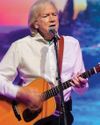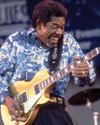
Welcome to our feature designed to explore a range of South American rhythms. Each has its own name and own particular sound, and the Latin people are highly proud and protective of each one’s authenticity. What I hope you’ll gain from the lesson are some core techniques and concepts to help you build a vocabulary in these vibrant styles. We have chosen six contrasting rhythms from this exciting continent, and for each we have recorded a 16-bar performance piece, with backing track to practise along with.
The guitar plays an important role in these styles but we can also adapt typical piano parts onto the guitar. A nylon-string is stylistically effective and appropriate for playing these styles, but any guitar can be used so there is no excuse not to get involved.
When studying South American music it’s helpful to know how each of the instruments in the ensemble functions. There are even specific names applied to each instrument’s function within the arrangement.
The ‘clave’ is a rhythmic pattern typically used in Afro Cuban music styles (salsa, cha cha cha, mambo, rumba, samba, etc). The five-stroke clave rhythm forms the backbone of the rhythm section. We have written out two of the most popular claves to study (see technique focus and fig 1 for details).
The ‘cascara’ rhythm (it means ‘shell’ and was originally played on the side or ‘shell’of the timbale drums. Drummers often play cascara rhythms on various parts of the kit and this adds to the complexity of the sound.
Bu hikaye Guitar Techniques dergisinin September 2023 sayısından alınmıştır.
Start your 7-day Magzter GOLD free trial to access thousands of curated premium stories, and 9,000+ magazines and newspapers.
Already a subscriber ? Giriş Yap
Bu hikaye Guitar Techniques dergisinin September 2023 sayısından alınmıştır.
Start your 7-day Magzter GOLD free trial to access thousands of curated premium stories, and 9,000+ magazines and newspapers.
Already a subscriber? Giriş Yap

THE MOODY BLUES
This month Stuart Ryan delves into the picking style of this British prog legend whose acoustic guitar has powered many a Moody Blues song.

WAYNE KRANTZ
This issue Nick Mellor provides an insight into this brilliant jazz stylist, focusing on his approach to improvising over static chords.

OPEN G TUNING
Open tunings are great fun and can help create exciting new ideas. Simon Barnard shows how to incorporate open G tuning into your playing.

RODRIGO GOUVEIA
Last month we featured Mateus Asato, and mentioned the importance of the neo-soul style in his playing. Here we turn to his fellow Brazilian, the master of neo-soul fusion.

MARK KNOPFLER
Our topic this month is a master craftsman as both guitar player and songwriter. His style is unique and his influence spreads far and wide.

U2
Martin Cooper checks out the chiming pedal delay tones of this stadium-filling band from Dublin, Ireland, and guitarist The Edge.

LUTHER ALLISON
It’s blues with a touch of soul this month, as David Gerrish explores the dynamic, expressive style of an often overlooked Chicago bluesman.

JOHANN KASPAR MERTZ Capriccio
This month Declan Zapala explores the music of Austria at the turn of the Romantic period with a fiery caprice to level up your fingers and unlock your inner virtuoso.

THE CROSSROADS Michael Landau
John Wheatcroft explores the playing of a session ace _ and blazing blues-rock maestro who graces the top-flight m band of singer-songwriting legend, James Taylor.

VIDEO MASTERCLASS Troy Redfern
This month GT welcomes this slide guitar virtuoso. If you've been wanting to take your slide playing to the next level then this is one's for you. With Jon Bishop.